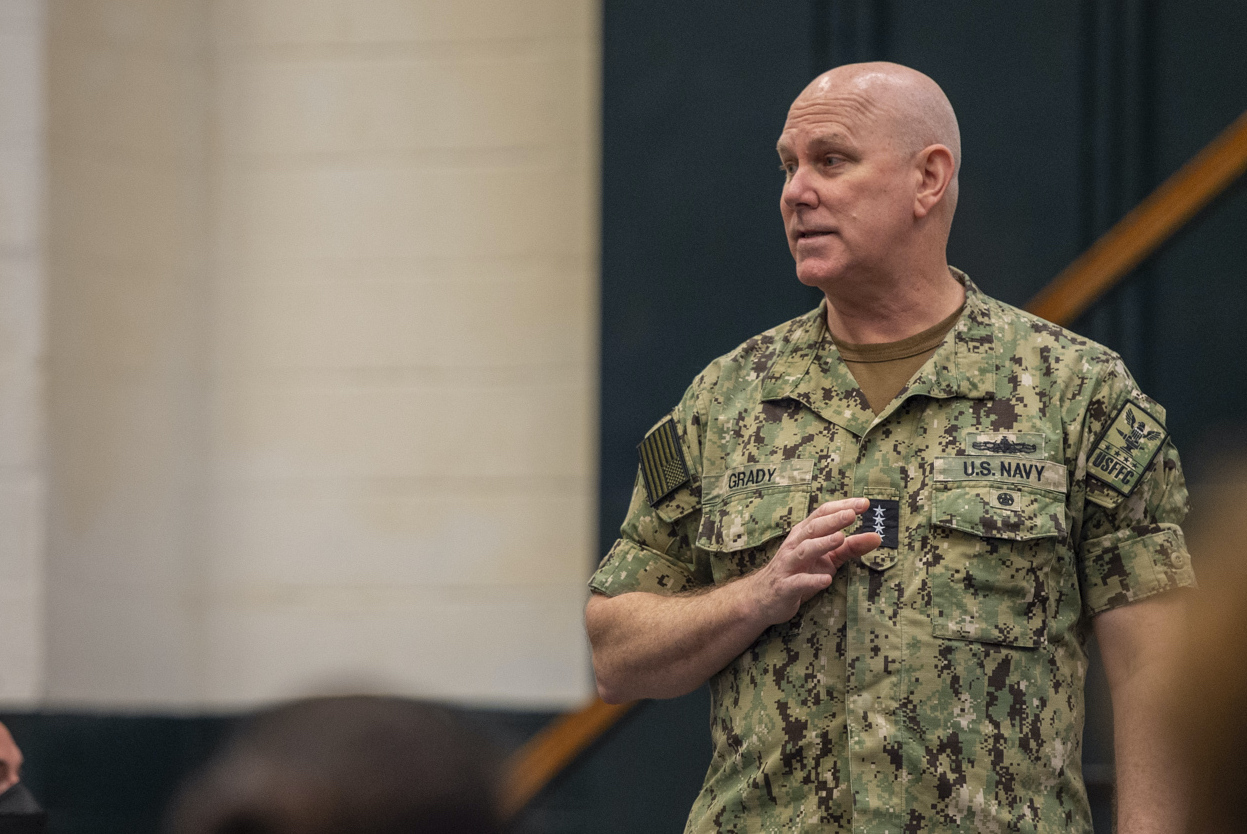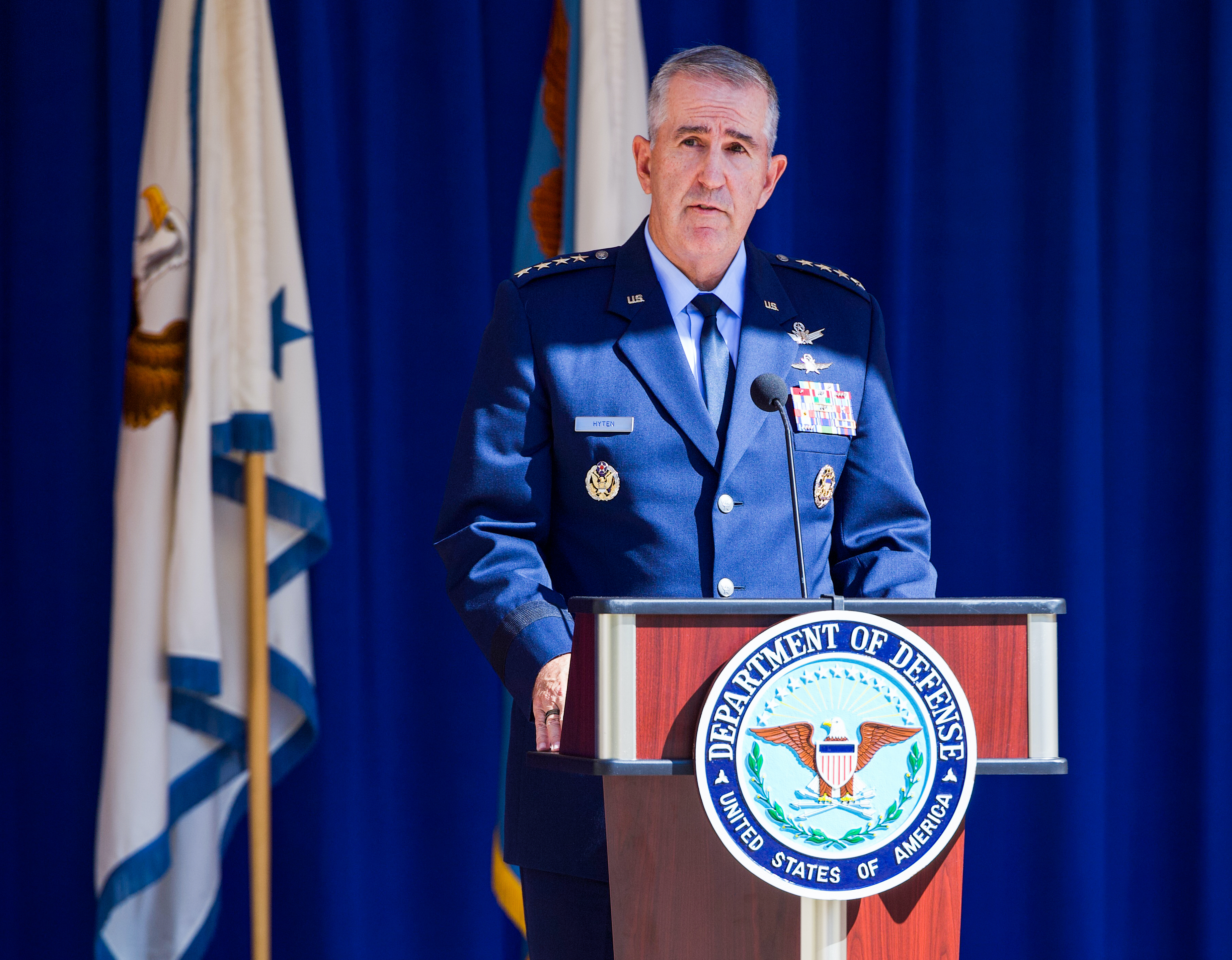
This post has been updated with the official nomination announcement from the Pentagon.
The White House has nominated the current commander of U.S. Fleet Forces Command to serve in the number two position on the Joint Chiefs of Staff, USNI News has learned.
Adm. Chris Grady’s nomination to serve as the vice chairman of the Joint Chiefs of Staff was submitted to the Senate Armed Services Committee on Monday, two legislative sources familiar with the nomination told USNI News. A notice of the nomination was posted on Tuesday on Congress.gov. The Pentagon released a nomination announcement following an earlier version of this post.
If confirmed, Grady will succeed Air Force Gen. John Hyten, who is set to retire before the end of the month. Hyten, who took on the role in late 2019, was confirmed for a two-year term. Following a change in the law in 2017, the next vice chair is slated to be in the job for four years.
“Gen. Hyten has always understood his tenure as Vice Chairman of the Joint Chiefs of Staff would last two years and plans to retire upon the completion of his term,” Hyten spokeswoman Maj. Trisha Guillebeau told USNI News last year.
“The next Vice Chairman will serve a four-year term. Gen Hyten will serve two years. The intent of Congress was to offset the Chairman and the Vice Chairman positions by two years.”
The White House was considering the nomination up until last week. Other contenders for the role included current U.S. Strategic Command commander Adm. Charles Richard. Grady spoke with White House officials last week about the job, a defense official told USNI News.

Grady’s change of command from the Fleet Forces job was scheduled for last month, but was delayed until mid-November in part to keep Grady eligible for the position, two defense officials confirmed to USNI News.
Hyten has expressed concern that delay in nominating his replacement would hamper progress the U.S. has made in developing electronic warfare and spectrum operations – a new role for the vice chair.
“We used to be the best in the world at electronic warfare. Now we don’t train it. We don’t educate it. We don’t equip it. And so it’s been recognized and we have to fix it because spectrum was key to every domain – it’s key to every operation, key to every functional battle. Spectrum was key. So I’m worried that I’ve been pushing spectrum and if the vice chairman is not there – as a senior designated official for spectrum – that that momentum could be lost,” he told reporters last week.
Last week, Hyten also called on his successor to be vocal about the Pentagon’s priorities.
“If we don’t talk to the press there’s no way to get the message out. It just doesn’t happen. So I’ll have this discussion – the love-hate discussion – with my successor at some point,” Hyten said about the Pentagon’s communication with reporters. “I may be retired when I have the discussion, but we’ll have it. And he knows he has to tell the story. That’s the only way to get the story out is to tell the story.”
Grady, a career surface warfare officer, has led the Norfolk, Va.,-based Fleet Forces Command since February of 2019. Prior to Fleet Forces, Grady commanded the Europe-based U.S. 6th Fleet from 2016 to 2019. He had previously commanded the Carl Vinson Carrier Strike Group, Destroyer Squadron 22, guided-missile destroyer USS Cole (DDG-67) and Avenger-class mine countermeasures ship USS Ardent (MCM-12).





